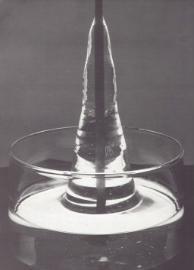
Contents
The course will start with conveying the required theoretical understandings and experimental techniques and concepts. This should give the user the opportunity, depending on her/his goals, to make a motivated choice on which type of measurement is best suited to his/her application and how these measurements should be analyzed and interpreted. The course proceeds to provide clarity and understanding in the labyrinth of constitutive models describing the nonlinear viscoelastic material behavior of melts, polymer solutions and other non-Newtonian substances. By focusing on the physical mechanisms that govern the behavior of these materials, a link between a continuum mechanic and a more molecular approach is established. Examples and techniques from the study of colloidal soft materials further serve to explain and illustrate the overarching concepts and to bridge the gap between the molecular and the macroscopic levels. Recent results from the MATE group will be an integral part of the course and will serve to illustrate both the theoretical and experimental aspects of rheology.
Learning objectives
This course aims at conveying the understanding of the use of rheology to characterize a wide range of materials, ranging from biological materials to polymer melts. These soft materials exhibit viscoelastic and often highly nonlinear mechanical behavior, which is important in a wide range of applications ranging from polymer processing (injection molding, spinning, mixing) and other industrial processes (oil recovery, food, cosmetics, etc.) to bio-mechanical processes (flow of blood, deformation of brain tissue). Examples of these different materials and their rich behaviors will serve as a motivation to introduce the relevant theoretical concepts and experimental techniques.
Contact
-
Adriana van der BergStefan van der BergKuijperspad1619KB Stein